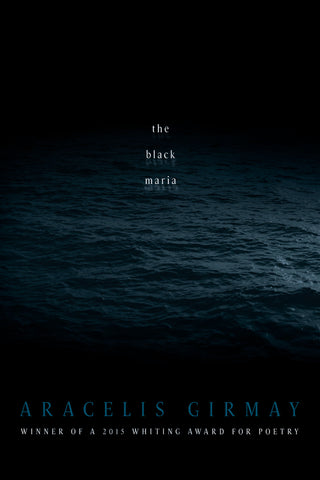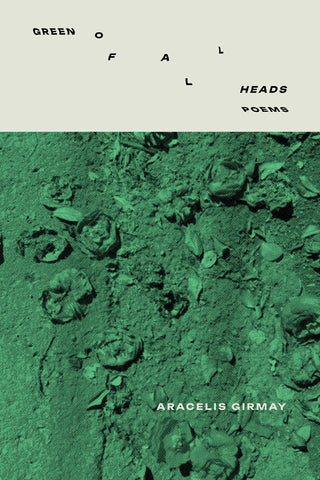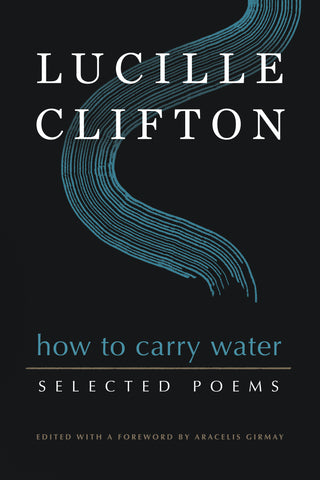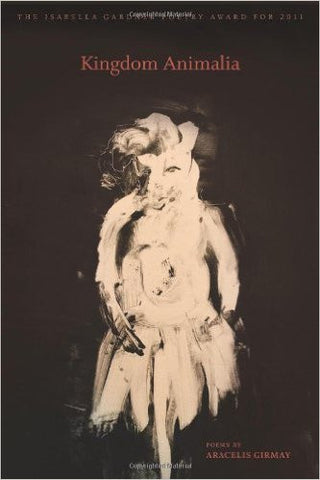
About This Title
A “Best Book of 2016” for The New Yorker, the Boston Globe, the Chicago Review of Books, and Publishers Weekly
An O, The Oprah Magazine 2016 “Gem of the Genre”
Publishers Weekly 2016 #1 in Poetry Top 10
A Publishers Weekly “Most Anticipated Book of Spring 2016”
A Library Journal 2016 Poetry Top Pick
Winner of a 2015 Whiting Award for Poetry
Winner of Poetry magazine’s 2016 Bess Hokin Prize
Taking its name from the moon’s dark plains, misidentified as seas by early astronomers, the black maria investigates African diasporic histories, the consequences of racism within American culture, and the question of human identity. Central to this project is a desire to recognize the lives of Eritrean refugees who have been made invisible by years of immigration crisis, refugee status, exile, and resulting statelessness. The recipient of a 2015 Whiting Award for Poetry, Girmay’s newest collection elegizes and celebrates life, while wrestling with the notion of seeing beyond: seeing violence, seeing grace, and seeing each other better.
“First Estrangement”
I do not remember back then
when I was trying to leave one world
for the next, my girl-mother on the table,
all her darkness torn
for our two-headedness,
when around our violence floated
the universe, & we,
the naked astronauts
at our ends, at our beginnings,
years away from that staggering
out of one depth into another,
I remember her when I crack, again,
open the (already) starlight of the pomegranate,
when I bow my ear down toward it like a deer,
the hunger comes, faintly it screams
the memory of stars,
of estrangement, the lungs
pumping with air
How I take, & take
what I cannot give back
Praise for the black maria
“[Girmay’s] every loss—she calls them estrangements—is a yearning for connection across time and place; her every fragment is a bulwark against ruin.” —O, The Oprah Magazine
“This year, I’ve sought out and found solace in language, both poetry and prose. Aracelis Girmay’s the black maria has left images still planted deep within me.” —Ada Limón, The New Yorker
“Crowned by an extraordinary long poem interweaving the childhood of astrophysicist Neil deGrasse Tyson . . . Aracelis Girmay’s third book of poetry looks at the crimes committed against African Americans throughout history and now . . . These poems repeat themselves, reuse lines, feel anxious and scattershot, but there is beauty and imperative witness everywhere here.” —NPR Books
“the black maria isn’t just some of the best poetry I read this year, it’s also one of the most powerful and memorable collections I’ve read as an adult.”—Adam Morgan, Chicago Review of Books
“The long history of abuse against African Americans threads through this latest excavation by Girmay, whose work always lays bare the importance of history and the vertigo caused by its unknowing.”—Boston Globe
“Girmay [weaves] together intimate and communal stories to express the emotional agony of an exploited and paling culture. the black maria has an agenda, but not the one we might expect; rather than issuing a call to action for the Eritrean diaspora, the poet employs personal and ancestral experience to catalyze a unified, remembered loss. Her poetry is therefore a call for the recognition of vulnerability and subjectivity: in the poet’s own words, ‘& so to tenderness I add my action.’ At times, the collection reads like a historical text; occasionally, it feels like angst immortalized in a diary; most often, the black maria reads like a poeticized eulogy—at once a celebration of life, an effort at reconciliation with death, and a testament to the unifying power of loss.”—Boston Review
“Girmay, winner of a 2015 Whiting Award, crafts a moving collection of lyrical, image-thick poems that balance on the knife edge separating vulnerability and unapologetic strength. The lives of Eritrean refugees and immigrants serve as the collection’s thematic foundation, though Girmay also thoughtfully dissects and examines blights of America’s current sociopolitical climate, particularly police brutality and the murders of such young black women and men as Renisha McBride and Jonathan Ferrell . . . Girmay effortlessly slips between collective history and personal memory, tackling the subject of black pain without victimizing herself or exploiting the voices of the marginalized.” —Publishers Weekly, *Starred*
“Whiting Award winner Girmay recalls the larger African diaspora as she commemorates more than 20,000 people who have died sailing from North Africa to Europe in a bid for a better life . . . Using bold, sharply lyric language, she addresses the drowned as ‘you,’ encircling them in community and giving them a humanity and individuality death statistics belie. VERDICT: Beautiful, brilliant, and palpably angry; an important book all readers can appreciate.” —Library Journal, *Starred*
“Lunar maria, dark, basaltic plains on the moon’s surface, take their name from the Latin word for seas, identified as such by mistaken astronomers. This fascinating confusion fuels Girmay’s third poetry collection, which co-opts the sailing-obsessed tales of Odysseus, adopts African slave Abram Gannibal, ancestor of renowned Russian poet Alexander Pushkin, and testifies on behalf of the wrongfully accused Black Panther George Jackson, among many others. . . . astoundingly effective, [this] bright, ambitious work deserves several rereadings. A self-described ‘inheritor of Eritrean, Puerto Rican, and African American traditions,’ Girmay is a dazzling, wildly dynamic poet.” —Booklist
“Aracelis Girmay’s new poetry collection, the black maria—a haunting, blistering, vital examination of the African diaspora from 15th-century slave ships to Neil deGrasse Tyson—is a book of memories and seas . . . One cannot help but be reminded of Claudia Rankine’s Citizen: An American Lyric . . . maybe this ‘John Henryism’ is the memory Girmay brings out as she traverses the African continent, from the Congo under the Belgians to present-day Asmara, and back in time to Luam and Abram when black children were being abducted and sold as gifts. More than any other question, the black maria forces us to ask ourselves if anything has truly changed since then.” —Chicago Review of Books
“the black maria, Aracelis Girmay’s intricate epic of black survival, enraptures the reader in a gaze that looks simultaneously backward and forward, toward past and future that are impossible to see yet crucial to imagine.”—Ploughshares
“the black maria emerges from a spirit of elegy, moral vision, and protest, and places itself in traditions that include June Jordan, Paul Celan, Joy Harjo, and James Baldwin. Unique to this collection is Girmay’s signature willingness to risk narrative sentiment and lyric authenticity, which she inhabits with remarkable force, willing her readers to be remade in her visionary healing.”—SCOUT
“the black maria is rich with countless descriptions of the sea, and Girmay manages to make each seeing new, nimbly crafting each poem to possess and plunge the reader into its glimmering pages, offering us an ocean full of voices, full of historical remnants . . . Not only does she reach a hand into the heart-root and depths of the reader, she fills the page with urgent breath, line after line, a singing that asks you to listen, to lie down, be washed clean in its waiting ocean. How I look forward to returning for the breath between these pages, again and again.”—Safiya Sinclair, On the Seawall
“Girmay proves herself a distinctly original lyric voice . . . the black maria elegizes the dehumanizing effects of colonialism and institutionalized racism, yet champions the documentary power of language to overcome the silences that threaten to swallow trauma. In our age of historical amnesia, Girmay’s potent poems are necessary reading for anyone committed to addressing global questions of race, justice, and equality.”—Plume
“[Girmay’s] project seems to be our deep and ongoing subjectivity, our vulnerability to history, to one another, to desire, and to the belief in something large and lasting that we might belong to. There’s empathy, play, and fearlessness here, and both formal and emotional range. The beauty of these poems is always married to a deep, implacable pang. Their consolation is always rooted in the unifying force of remembered loss.” —2015 Whiting Award Selection Committee
“In Aracelis Girmay we have a poet who collects, polishes, and shares stories with such brilliant invention, tenderness, and intellectual liveliness that it is understandable that we think of her as the blessed curator of our collective histories. There is in her art the vulnerability of one who lives inside of the stories that she gathers in this remarkable collection. Her poems set off alarms even as they transform the world she inhabits, showing us, in the process, exactly what she asks of Romare Bearden’s art: ‘…how not to // assign all blackness near the sea / a captivity.’ This is one of the many sweet contradictions in the black maria, which ‘is a black flag / wounding the pastoral.’ I am deeply thankful that we have a poet of her unique and singular talent writing today.” —Kwame Dawes
“There is a saying in Spanish, ‘Cada cabeza es un mundo,’ which translates ‘every mind is a universe unto itself.’ And Girmay’s world, universe, opens new ways of seeing the simplest things and giving them voice. Everything contains some clue of another self, body or kindred spirit. Like an archaeologist, she digs deeply finding herself in every living thing, even in the inanimate. Her magic is poetry at its best.” —National Books Critics Circle
Publication Date: April 12, 2016
ISBN: 978-1-942683-02-5
© BOA Editions, Ltd. 2016




